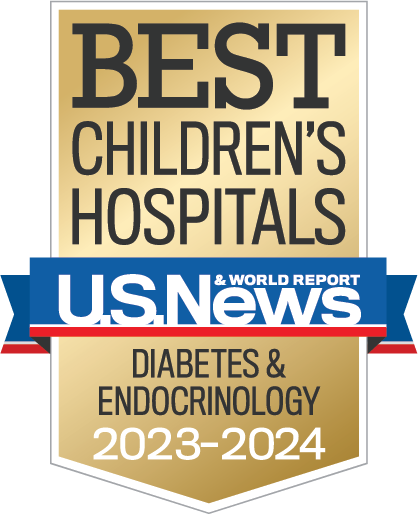- Doctors & Departments
-
Conditions & Advice
- Overview
- Conditions and Symptoms
- Symptom Checker
- Parent Resources
- The Connection Journey
- Calm A Crying Baby
- Sports Articles
- Dosage Tables
- Baby Guide
-
Your Visit
- Overview
- Prepare for Your Visit
- Your Overnight Stay
- Send a Cheer Card
- Family and Patient Resources
- Patient Cost Estimate
- Insurance and Financial Resources
- Online Bill Pay
- Medical Records
- Policies and Procedures
- We Ask Because We Care
Click to find the locations nearest youFind locations by region
See all locations -
Community
- Overview
- Addressing the Youth Mental Health Crisis
- Calendar of Events
- Child Health Advocacy
- Community Health
- Community Partners
- Corporate Relations
- Global Health
- Patient Advocacy
- Patient Stories
- Pediatric Affiliations
- Support Children’s Colorado
- Specialty Outreach Clinics
Your Support Matters
Upcoming Events
Colorado Hospitals Substance Exposed Newborn Quality Improvement Collaborative CHoSEN Conference (Hybrid)
Monday, April 29, 2024The CHoSEN Collaborative is an effort to increase consistency in...
-
Research & Innovation
- Overview
- Pediatric Clinical Trials
- Q: Pediatric Health Advances
- Discoveries and Milestones
- Training and Internships
- Academic Affiliation
- Investigator Resources
- Funding Opportunities
- Center For Innovation
- Support Our Research
- Research Areas

It starts with a Q:
For the latest cutting-edge research, innovative collaborations and remarkable discoveries in child health, read stories from across all our areas of study in Q: Advances and Answers in Pediatric Health.



The Bone and Mineral Metabolism Program at Children’s Hospital Colorado specializes in the evaluation and treatment of conditions that affect children’s bone health or create abnormal levels of minerals in the blood. This can include conditions like hypocalcemia, hypercalcemia, hypophosphatemia, hypoparathyroidism, parathyroid hormone related disorders, low bone density, osteoporosis, vitamin D deficiency and nutritional and genetic forms of rickets.
About the Bone and Mineral Metabolism Program
The Bone and Mineral Metabolism Program provides a comprehensive, multidisciplinary approach to care that includes experts from endocrinology, nephrology, nutrition and orthopedics. An appointment starts with taking a history and physical examination of your child, which helps us put together a customized evaluation plan. Evaluations may include:
- Blood test: Helps us evaluate mineral levels, the hormonal regulation of these minerals, and test for causes of low bone mass and osteoporosis
- Urine test: Helps us evaluate mineral levels
- X-ray: An imaging technique that allows us to look at your child’s bones for any abnormalities
- Bone density test: An imaging technique that allows us to quantitate bone mass
Depending on your child’s diagnosis, treatment may include:
- Change in mineral balance through medication or diet
- Bisphosphonate therapy
- Nutritional counseling
- Physical therapy
Why choose us for bone and mineral metabolism care
We are specifically trained to treat pediatric and adolescent patients, which means we understand that there’s a window of opportunity to help youth reach peak bone mass. In other words, by our early 20s, we don’t gain any more bone. That’s why it’s extremely important to help children and adolescents build as much bone as possible while their bodies are still growing.
The information we receive from your child’s evaluation helps our specialists make an accurate diagnosis. This is an important step, because it allows us to customize a care plan specifically for your child so that their treatment is effective. The benefit of a multidisciplinary approach to care is that we can look at treatment from many angles. If your child is suffering from a mineral metabolism disorder, treatment may include a change in nutrition, supplements or medication. Or if your child has osteoporosis, we’ll develop a plan that helps strengthen their bones, which may include bisphosphonate therapy, information on how to create a diversified diet, and appropriate weight bearing exercises to increase their bone mass.
We create a customized care plan like this for every child based on the expertise of many pediatric specialists, including:
- Endocrinologists
- Nephrologists
- Orthopedic physicians
- Nurse coordinators
- Dietitians
- Administrative service coordinators
- Patient/Family service specialists
Additionally, we’re not just interested in treating kids with methods that are currently available. We’re working to create new and better methods to achieve optimal bone health in children through research studies and clinical trials in which some of our patients may have the opportunity to participate. Our studies include:
- Understanding the natural history of achondroplasia, including studying the complications that come with having the condition
- Phase 2 clinical trial for achondroplasia, which includes introducing medication to promote longer bone growth
- Assessing the long-term safety and effectiveness of burosumab treatment in patients with X-linked hypophosphatemia (XLH)
- Evaluating a novel formulation of potassium citrate and potassium bicarbonate in the treatment of distal renal tubular acidosis
Who we treat at the Bone and Mineral Metabolism Program
The Bone and Mineral Metabolism Program treats children of all ages with a variety of conditions. This includes children whose bodies are having trouble creating bone due to a deficiency in collagen or mineral (calcium or phosphorus). This also includes children who develop weak bones or osteoporosis secondary to other conditions or the treatments for those conditions, such as cancer, inflammatory bowel disease and neuromuscular disease.
The conditions we treat include:
- Fibrous dysplasia
- Hypercalcemia
- Hyperparathyroidism
- Hyperphosphatasia
- Hypocalcemia
- Hypoparathyroidism
- Hypophosphatemia
- Hypophosphatasia
- Low bone density
- Nephrocalcinosis
- Nephrolithiasis
- Osteogenesis imperfecta
- Osteopenia
- Osteoporosis
- Parathyroid hormone related disorders
- Rickets and hypophosphatemic rickets
- Vitamin D deficiency
Contact the Bone and Mineral Metabolism Program
Our Program offers appointments at the Anschutz Medical Campus in Aurora. Please call 720-777-6128 to schedule.
Get to know our experts

Nancy Hadley-Miller, MD
Orthopaedic Surgery

Nina Ma, MD
Endocrinology - Pediatric

Bradley Dixon, MD
Nephrology - Pediatric, Pediatrics
Patient ratings and reviews are not available Why?



 720-777-0123
720-777-0123




 At Children’s Hospital Colorado, we treat the big things, the small things and everything in between.
At Children’s Hospital Colorado, we treat the big things, the small things and everything in between.